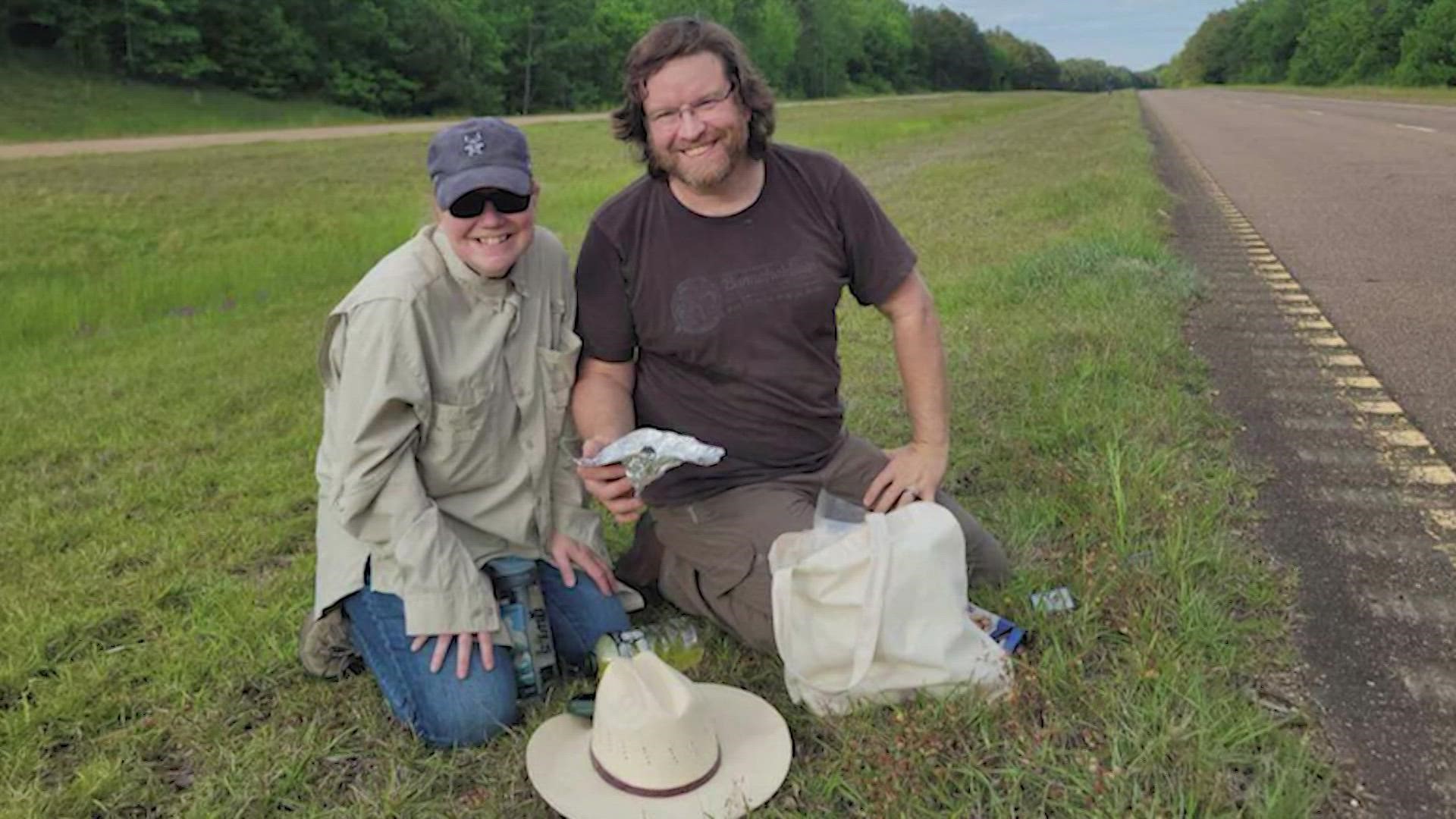HOUSTON — Meteorites some 4.5 billion years old are being analyzed at NASA's Johnson Space Center. They were discovered in Mississippi by scientists from Houston.
"As soon as I saw the thing, I screamed oh my gosh I found one!" said Marc Fries, a NASA cosmic dust curator.
NASA scientists said there are about 100 tons of meteorite material falling every day, but most times they go in places people can't get to.
That wasn't the case when this meteorite was found on Highway 84 in Mississippi.
"It was spectacular," said Marc.
Marc drove five-plus hours from Houston along with his wife Linda.
"We've had meteorite dates in the past, but this is the first both of us have found a meteor like this," said Marc.
Linda Fries works in the Earth and Planetary Science Department at Rice University.
"It was the ultimate date," said Linda Fries, a science writer. "I don't think anybody else could achieve something similar."
It's easy to see how the Fries have a rock-solid relationship. They found love and a fragment of a meteor that is some 4.5 billion years old.
"It is a remnant of the very first steps of the very first stages of our solar system and our planet," said Marc.
"They're like time capsules," said Paul Abell, NASA'S Chief Scientist for small body exploration. "We can go back in time and see what things were like 4.5 billion years ago."
Abell works alongside Marc at NASA. He also runs the Rapid Response Meteorite Recovery Team. Abell went to Mississippi with members from the Lunar and Planetary Institute.
"We find these meteorites and it's just like Christmas Day," said Abell. "You're so excited! The team is high-fiving. It's just tremendous.

